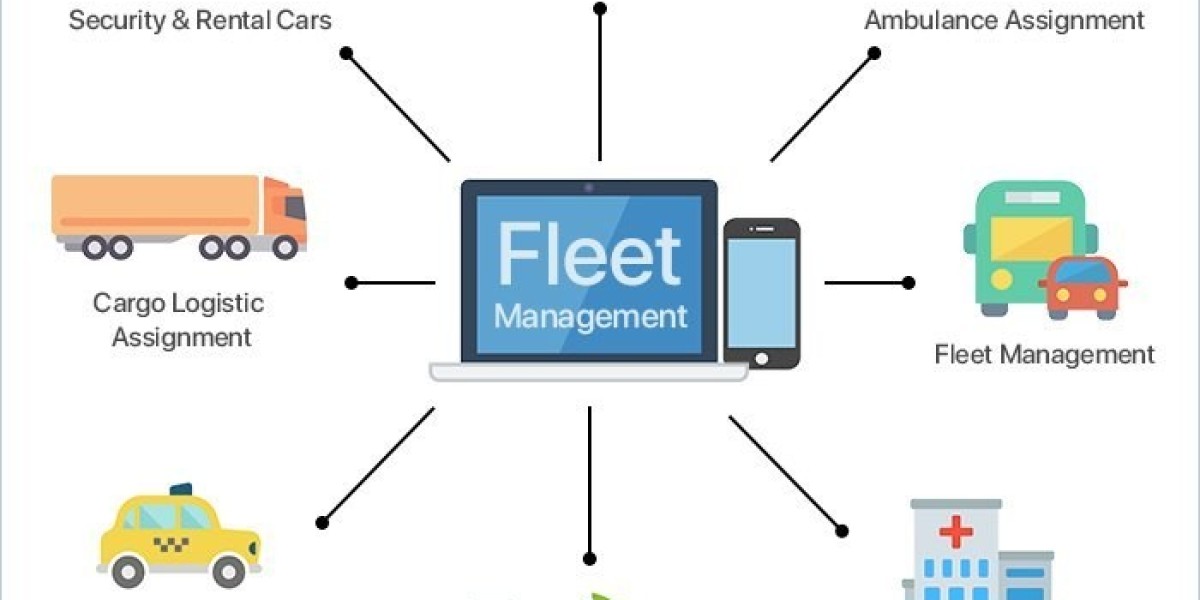Fleet Management Platforms: Transforming the Future of Transportation and Logistics
In an age where efficiency, safety, and real-time decision-making are critical to business success, Fleet Management Platforms have become the backbone of modern logistics and transportation operations. Whether you're managing a handful of delivery vans or a nationwide network of trucks, fleet management systems are essential for keeping your operations running smoothly.
In this blog, we’ll explore what fleet management platforms are, their key features, benefits, and how they’re transforming industries across the globe.
What Is a Fleet Management Platform?
A Fleet Management Platform is a software solution designed to help businesses manage, track, and optimize their fleet of vehicles. These platforms combine GPS tracking, telematics, maintenance scheduling, driver behavior monitoring, fuel management, and analytics into a unified interface.
Think of it as a control tower for your entire fleet—offering real-time visibility, insights, and automation that help reduce costs and improve service quality.
Core Features of Fleet Management Platforms
Here are some of the most important capabilities you’ll find in modern fleet management solutions:
1. Real-Time GPS Tracking
GPS allows fleet managers to monitor the exact location of vehicles at all times. This enhances route optimization, reduces unauthorized vehicle use, and improves ETA accuracy.
2. Telematics and Diagnostics
Advanced telematics pull data directly from the vehicle’s onboard systems, providing insights into fuel consumption, engine health, and more. This helps in predictive maintenance and reduces breakdowns.
3. Driver Behavior Monitoring
Platforms can track speeding, harsh braking, idling, and other driving habits. By analyzing this data, companies can improve driver safety and reduce liability.
4. Route Optimization
By using AI and real-time traffic data, platforms can suggest more efficient routes—cutting down on fuel costs, time, and emissions.
5. Automated Maintenance Scheduling
Fleet managers can set up alerts for oil changes, tire rotations, and other routine maintenance tasks, ensuring vehicles remain roadworthy and compliant.
6. Compliance Management
FMPs help companies stay compliant with regulations such as Hours of Service (HOS), ELD mandates, and emissions standards.
7. Fuel Management
Track fuel purchases, monitor consumption, and identify potential theft or inefficiencies—key for controlling one of the largest expenses in fleet operations.
8. Reporting and Analytics
From operational costs to driver scorecards, detailed reports empower managers to make data-driven decisions that improve ROI.
Benefits of Fleet Management Platforms
Investing in a fleet management system yields numerous benefits:
Cost Savings: Reduced fuel usage, fewer breakdowns, and optimized routes lower operational costs.
Improved Safety: Driver monitoring promotes better habits, reducing accidents and insurance premiums.
Higher Efficiency: Automation eliminates manual tasks and increases productivity across the board.
Regulatory Compliance: Simplifies documentation and keeps your fleet aligned with government standards.
Customer Satisfaction: Accurate ETAs and faster deliveries mean happier customers.
Industries That Use Fleet Management Platforms
Fleet management isn’t just for trucking companies. It plays a critical role in many sectors, including:
Logistics and Supply Chain
Public Transportation
Construction
Utilities
Emergency Services
Field Service Management
Each industry tailors fleet management to its specific needs—be it real-time dispatching for ambulances or efficient equipment tracking for construction.
Future Trends in Fleet Management
As technology evolves, so do fleet management platforms. Here are a few trends shaping the future:
AI and Machine Learning: Enhancing predictive maintenance, route planning, and even automated driver coaching.
Electrification: Platforms are integrating EV-specific tools like charge station mapping and battery diagnostics.
IoT Integration: Connected sensors provide more granular data, from tire pressure to cargo temperature.
Autonomous Fleets: Though still emerging, fleet platforms are evolving to support semi- and fully-autonomous vehicles.
Choosing the Right Fleet Management Platform
When selecting a solution, consider:
The size and type of your fleet
Integration with existing systems (ERP, CRM)
Mobile capabilities for on-the-go monitoring
Customer support and training
Scalability as your business grows
Popular platforms include Samsara, Verizon Connect, Geotab, Fleet Complete, and KeepTruckin, each with unique strengths and pricing models.
Final Thoughts
Fleet Management Platforms are no longer optional—they’re essential tools for competitive, compliant, and cost-effective fleet operations. As businesses face growing pressure to optimize resources, meet sustainability goals, and deliver superior customer service, these platforms provide the visibility and control needed to succeed.
Whether you're a small business looking to gain better insight into your delivery vans or an enterprise managing thousands of assets across continents, the right fleet management solution can drive measurable improvements across the board.







